Center Team
Management Team
-
Michael Silevitch
Bio
Director of ALERT -
Carey Rappaport
Bio
Deputy Director & Bulk Sensors and Sensor Systems Lead -
Jimmie Oxley
Bio
Characterization & Elimination of illicit Explosives Lead -
David Castanon
Bio
Video Analytics and Signature Analysis Lead -
Stephen P. Beaudoin
Bio
Trace & Vapor Sensors Lead -
Charles DiMarzio
Bio
Education Program co-Lead -
James Smith
Bio
Education Program Co-Lead -
Emel Bulat
Bio
Industrial and Government Liaison Officer -
Horst Wittmann
Bio
Research Evaluation Advisory Panel Leader
Partner Institutions
Northeastern University (Lead)

Founded in 1898, Northeastern University is a private research university located in the heart of Boston. Northeastern is a leader in worldwide experiential learning, urban engagement, and interdisciplinary research that meets global and societal needs. Our broad mix of experience-based education programs – our signature cooperative education program.
Boston University (Strategic Partner)

Boston University is an international, comprehensive, private research university, committed to educating students to be reflective, resourceful individuals ready to live, adapt, and lead in an interconnected world. Boston University is committed to generating new knowledge to benefit society.
Purdue University (Strategic Partner)

Purdue University is a vast laboratory for discovery. The university is known not only for science, technology, engineering, and math programs, but also for our imagination, ingenuity, and innovation. It’s a place where those who seek an education come to make their ideas real — especially when those transformative discoveries lead to scientific, technological, social, or humanitarian impact.
University of Rhode Island (Strategic Partner)

The University of Rhode Island is the State’s public learner-centered research university. The University is committed to enriching the lives of its students through its land, sea, and urban grant traditions. Students, faculty, staff, and alumni are united in one common purpose: to learn and lead together.
Duke University

Tracing its origins to 1838, Duke University has evolved into one of the world’s leading institutions for education, research and patient care. Located in Durham, North Carolina, Duke is comprised of two major organizations: Duke University and Duke University Health System. At Duke University, the mission is to provide a superior liberal arts education, prepare people for lives of skilled and ethical service, advance the frontiers of knowledge, foster health and well being, and promote a sincere spirit of tolerance. Duke faculty and staff members work every day in support of this mission.
Marquette University

Marquette University is a Catholic, Jesuit university located near the heart of downtown Milwaukee, Wis., that offers a comprehensive range of majors in 11 nationally and internationally recognized colleges and schools. A Marquette education offers students a virtually unlimited number of paths and destinations and prepares them for the world by asking them to think critically about it.
Rensselaer Polytechnic Institute

Rensselaer Polytechnic Institute is the nation’s oldest technological university. For almost two centuries, Rensselaer has maintained its reputation for providing an undergraduate education of undisputed intellectual rigor based on educational innovation in the laboratory, classroom, and studio.
Tufts University

Tufts University School of Engineering educates engineers committed to the innovative and ethical application of technology to solve societal problems. The school provides national leadership in enhancing the role and visibility of the engineering profession in the education of youth and the development and implementation of public policy. Our students, faculty, and alumni, develop and disseminate transformational knowledge and technologies that further society’s well-being and sustainability. Strategic areas of emphasis include programs in health, sustainability, and the human-technology interface.
University of Notre Dame

The University of Notre Dame is a Catholic academic community of higher learning, animated from its origins by the Congregation of Holy Cross. The University is dedicated to the pursuit and sharing of truth for its own sake. As a Catholic university, one of its distinctive goals is to provide a forum where, through free inquiry and open discussion, the various lines of Catholic thought may intersect with all the forms of knowledge found in the arts, sciences, professions, and every other area of human scholarship and creativity.
University of Puerto Rico at Mayaquez

The Mayagüez Campus of the University of Puerto Rico is a co-educational, bilingual, and non-sectarian school comprising the Colleges of Agricultural Sciences, Arts and Sciences, Business Administration, Engineering, and the Division of Continuing Education and Professional Studies.
Other Organizations
Email Team Member Michael Silevitch
Director of ALERT
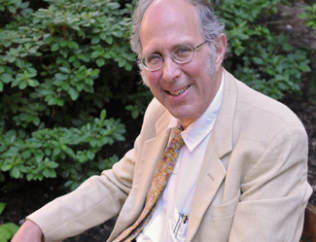
Prof. Silevitch is the Director of ALERT and also serves as the Director of the Bernard M. Gordon Center for Subsurface Sensing and Imaging Systems, a National Science Foundation Engineering Research Center. Previously he directed of the Center for Electromagnetics Research (an NSF Industry-University Center) and the Center for the Enhancement of Science and Mathematics Education (CESAME). Michael received the BSEE, MSEE and PhD from Northeastern University in 1965, 1966, and, 1971, respectively. He joined the faculty of Northeastern in 1972, and was appointed to the Robert D. Black Endowed Chair in Engineering at Northeastern in 2003. He is an elected fellow of the IEEE.
Email Team Member Carey Rappaport
Deputy Director & Bulk Sensors and Sensor Systems Lead

Along with being the Deputy Director of ALERT, Carey is an Associate Director of the Bernard M. Gordon Center for Subsurface Sensing and Imaging Systems. Professor Rappaport was the Principal Investigator of a $5M ARO-sponsored Multidisciplinary University Research Initiative in humanitarian demining, the lead researcher supporting Alion Science and Technology, Incs. $130M Omnibus Task Order with US Army Night Vision and the Electronic Sensors Directorate, as well as the Principal Investigator for a $4.9M Dept. of Homeland Security Advanced Spectrographic Radiation Portal Monitor for special radioactive materials.
Email Team Member Jimmie Oxley
Characterization & Elimination of illicit Explosives Lead
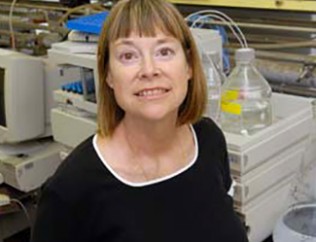
Dr. Oxley is the Characterization & Elimination of Illicit Explosives Lead for the ALERT Center. Dr. Oxley is also a Professor of Chemistry at the University of Rhode Island (URI) and co-Director of the Forensic Science Partnership of URI. She earned a Ph.D. from the University of British Columbia (Chemistry) and joined the faculty of New Mexico Institute of Mining & Technology (NMT) where she founded a Ph.D. program in explosives and created a Thermal Hazards Research group. Oxley’s lab specializes in the study of energetic materials—explosives, propellants, pyrotechnics. Dr. Oxley has organized numerous symposia and short courses for government and industrial laboratories on topics ranging from hazards analysis to bomb threats. Dr. Oxley has authored 80 papers on energetic materials (explosives, propellants, pyrotechnics).
Email Team Member David Castanon
Video Analytics and Signature Analysis Lead
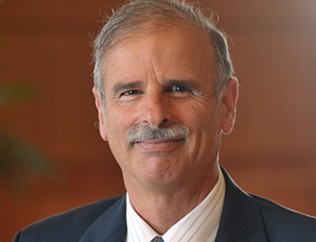
Dr. Castanon also serves as an Associate Director of the Bernard M. Gordon Center for Subsurface Sensing and Imaging Systems. He received his Ph.D. in Applied Mathematcis at Massachusetts Institute of Technology,(1976) and his B.S. in Electrical Engineering at Tulane University (1971). He is an Associate Editor of Computational Optimization and Applications. He is also a member of the IEEE Control Systems Society, Board of Governors, the Institute of Electrical and Electronics Engineers and the Society for Industrial and Applied Mathematics Previously, Dr Castanon was Senior Scientist at Alphatech, Inc and was also a Research Scientist at Massachusetts Institute of Technology, Engineering, Electrical Engineering, Laboratory for Information and Decision Systems.
Email Team Member Stephen P. Beaudoin
Trace & Vapor Sensors Lead
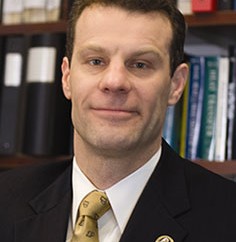
Dr. Beaudoin is the Trace & Vapor Lead for the ALERT Center. Stephen P. Beaudoin received his Bachelor of Science degree from MIT in 1988, his Master of Science degree from the University of Texas at Austin in 1990, and his PhD from North Carolina State University in 1995. All of his degrees are in Chemical Engineering.
Dr. Beaudoin was appointed Assistant Professor in Chemical Engineering at Arizona State University in the Fall of 1995, and was promoted to Associate Professor with tenure in the Fall of 2000. In the Spring of 2003, he joined the faculty of the School of Chemical Engineering at Purdue, where he was promoted to the rank of Professor in the Fall of 2006. Dr. Beaudoin has served the School of Chemical Engineering at Purdue as Associate Head, as Director of Undergraduate Studies, and as Director of Graduate Admissions. Dr. Beaudoin has won the Faculty Early Career Development Award from the National Science Foundation, and has been named a Purdue University Faculty Scholar and Purdue University Provost Fellow for Student Success. He has won numerous teaching and mentoring awards, including being the inaugural recipient of the Purdue University Student Government Teaching Excellence Award.
Dr. Beaudoin’s areas of research interest are focused on particle and thin film adhesion. His work finds applications in explosives detection and in microelectronics, food, and pharmaceutical manufacturing.
Email Team Member Charles DiMarzio
Education Program co-Lead
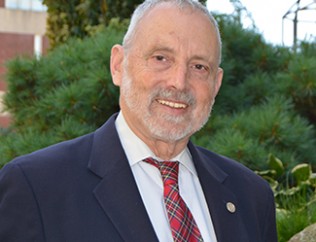
Prof. Charles DiMarzio is the ALERT COE Education Co-Lead. Prof. DiMarzio holds degrees from the University of Maine, WPI, and Northeastern University. After 14 years at Raytheon Company in coherent laser radar, he joined Northeastern University where he is an Associate Professor of Electrical and Computer Engineering, and Mechanical and Industrial Engineering. He is the author of a textbook, Optics for Engineers. His interests include confocal microscopy, multi–modal microscopy, and the interaction of light and sound.
Email Team Member James Smith
Education Program Co-Lead
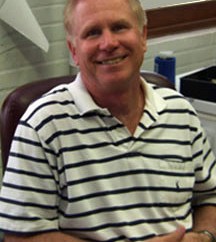
Email Team Member Emel Bulat
Industrial and Government Liaison Officer
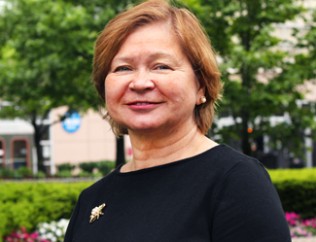
Ms. Bulat also fills this position for the Bernard M. Gordon Center for Subsurface Sensing and Imaging Systems. Prior to her current position, Ms. Bulat served as Director of Emerging Technologies at Textron Systems Corporation. She has published 16 technical papers, two business papers on Strategic Planning, and holds 10 US Patents.
“As the Industrial and Government Liaison Officer, I have had the opportunity to work with many small businesses that are the engines of the US economy, creating most of the new jobs in today’s tough business climate. Unlike many large institutions, their agility and speed in bringing new technology to market, given the right support structure amazes me. Having the responsibility to help our industrial members achieve success through teaming with our academic and government institutions gives me great pride and satisfaction.”
Email Team Member Horst Wittmann
Research Evaluation Advisory Panel Leader
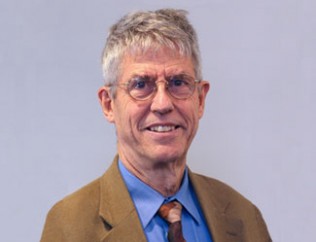
Horst also serves as the Senior Research Development Officer in the Office of the Provost of Northeastern University and is actively involved in the Gordon Engineering Leadership Program. In 2001 he retired from the federal Senior Executive Service as Associate Director of the Sensors Directorate, Air Force Research Laboratory, Wright-Patterson Air Force Base, OH, and from his position as Lead US Representative at the NATO Research and Technology Board, Sensors and Electronics Technology Panel. Dr. Wittmann’s field of scientific specialization is solid-state physics; he received the B.S in 1959 and the Ph.D. in 1964. He is a fellow of the IEEE and AAAS.
